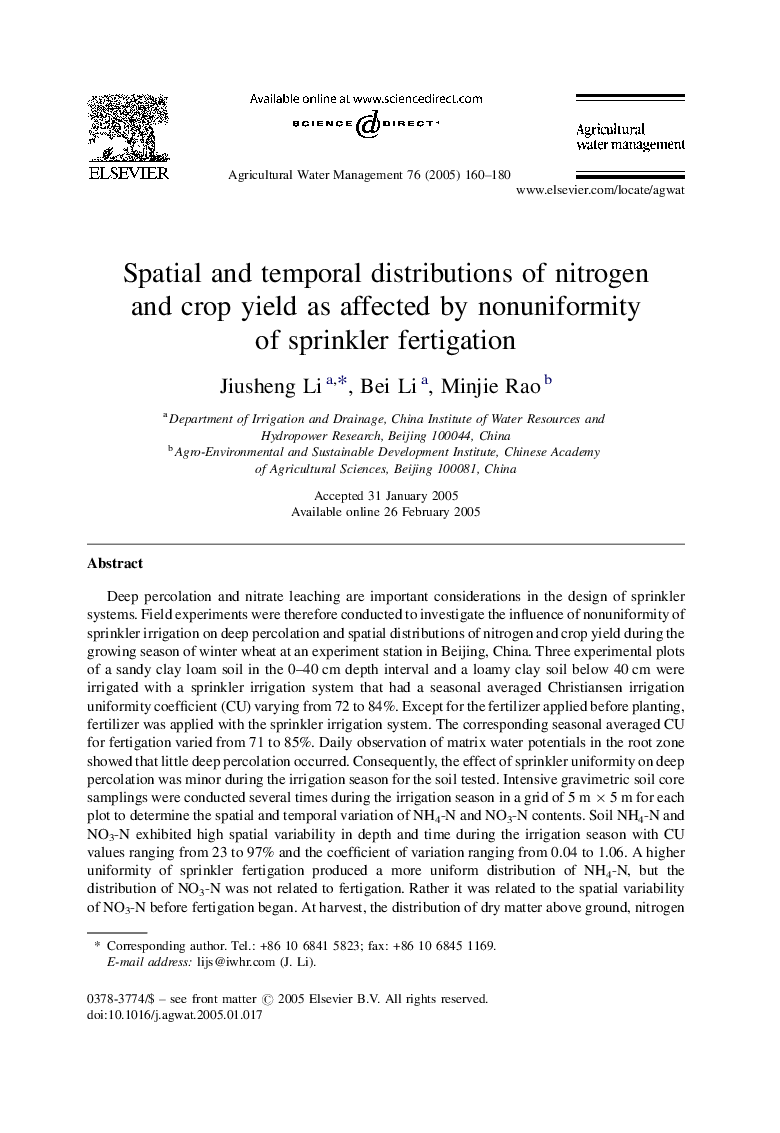| Article ID | Journal | Published Year | Pages | File Type |
|---|---|---|---|---|
| 9467297 | Agricultural Water Management | 2005 | 21 Pages |
Abstract
Deep percolation and nitrate leaching are important considerations in the design of sprinkler systems. Field experiments were therefore conducted to investigate the influence of nonuniformity of sprinkler irrigation on deep percolation and spatial distributions of nitrogen and crop yield during the growing season of winter wheat at an experiment station in Beijing, China. Three experimental plots of a sandy clay loam soil in the 0-40 cm depth interval and a loamy clay soil below 40 cm were irrigated with a sprinkler irrigation system that had a seasonal averaged Christiansen irrigation uniformity coefficient (CU) varying from 72 to 84%. Except for the fertilizer applied before planting, fertilizer was applied with the sprinkler irrigation system. The corresponding seasonal averaged CU for fertigation varied from 71 to 85%. Daily observation of matrix water potentials in the root zone showed that little deep percolation occurred. Consequently, the effect of sprinkler uniformity on deep percolation was minor during the irrigation season for the soil tested. Intensive gravimetric soil core samplings were conducted several times during the irrigation season in a grid of 5 m Ã 5 m for each plot to determine the spatial and temporal variation of NH4-N and NO3-N contents. Soil NH4-N and NO3-N exhibited high spatial variability in depth and time during the irrigation season with CU values ranging from 23 to 97% and the coefficient of variation ranging from 0.04 to 1.06. A higher uniformity of sprinkler fertigation produced a more uniform distribution of NH4-N, but the distribution of NO3-N was not related to fertigation. Rather it was related to the spatial variability of NO3-N before fertigation began. At harvest, the distribution of dry matter above ground, nitrogen uptake, and yield were measured and the results indicated that sprinkler fertigation uniformity had insignificant effects on the parameters mentioned above. Field experimental results obtained from this study suggest that sprinkler irrigation if properly managed can be used as an efficient and environment-friendly method of applying water and fertilizers.
Related Topics
Life Sciences
Agricultural and Biological Sciences
Agronomy and Crop Science
Authors
Jiusheng Li, Bei Li, Minjie Rao,
